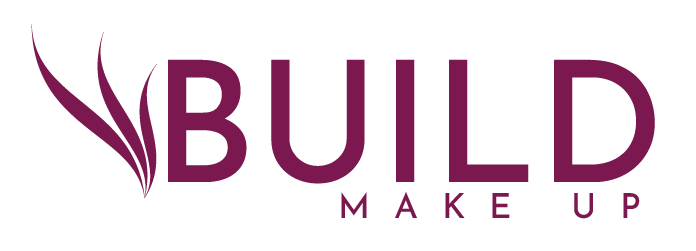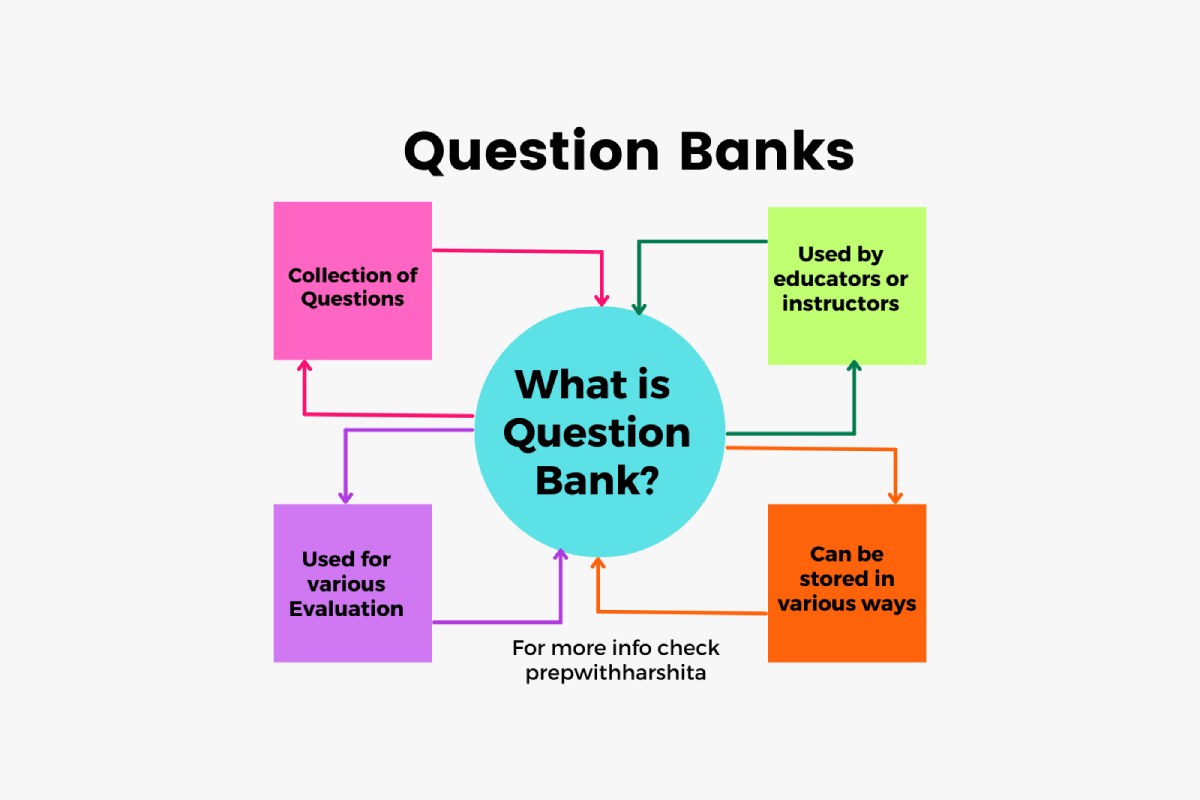The Benefits of Using Question Banks for Exam Preparation
Question banks, essential collections of categorized questions, have become crucial in the toolkit of both students and educators. Their increasing use underscores their effectiveness in boosting academic performance.
These resources transform exam preparation by offering a structured method to practice and review. With an array of question types ranging from multiple-choice to essay formats, question banks ensure that all aspects of a subject are thoroughly covered. These tools improve learning, enhance time management skills, boost learner confidence, and much more.
By focusing on specific areas needing attention, question banks enable targeted practice that can expand understanding and improve exam performance. Let’s delve into how these repositories can significantly alter the landscape of test preparation.
Enhancing Learning Through Diverse Questions
Question banks serve as a versatile educational tool by presenting a wide array of questions. This assortment not only challenges students with various problem types but also expands their understanding of the content. Navigating through multiple-choice scenarios, tackling short answer queries, and crafting detailed essay responses—each format demands unique analytical skills and critical thinking.
Furthermore, question banks are instrumental in uncovering students’ weak spots. As learners engage with these diverse questions, they can swiftly identify which areas require more focus. This method of pinpointed study is significantly more effective than traditional techniques that often scatter focus without addressing specific deficiencies.
Question banks also mimic the actual testing environment, offering students a crucial advantage in exam preparation. By practicing under conditions that resemble real exams, learners can acclimate to the format and pacing required, thereby easing test-day anxiety and potentially boosting their overall performance.
Mastering Time Management
Navigating the waters of time management is crucial for acing exams, and question banks are invaluable tools in this quest. A practical approach involves setting timers during question bank sessions. This method trains students to manage their minutes effectively, ensuring that each segment of the exam receives its due attention.
Leveraging practice exams from these question banks can also be a game-changer. These simulations mirror the actual exam’s format and timing, offering a taste of what to expect on the big day. With consistent practice, students naturally become adept at gauging the necessary time for each query, fine-tuning their exam strategies along the way.
Moreover, keeping an eye on how long it takes to tackle each question is beneficial. Many question banks come equipped with tools that track this duration, providing insightful feedback. This information allows learners to pinpoint which questions require more thought and tailor their preparation methods to boost time efficiency.
Building Confidence and Easing Anxiety
Engaging regularly with question banks can significantly enhance students’ self-assurance. As they grow accustomed to the variety of questions likely to appear on their exams, their belief in their own proficiency strengthens. This increased confidence often translates into superior performance during the actual exam.
Another significant advantage of using question banks is the reduction of exam-related anxiety. With each practice session, students become more at ease with both the format of the exam and its typical questions. This comfort level can transform what might otherwise be an intimidating ordeal into a manageable challenge, as students will have a clear understanding of what to expect and strategies for tackling each question.
“Practicing with question banks made me feel more prepared and less nervous on exam day,” one student remarked, encapsulating a common sentiment among learners. Such testimonials underscore how routine preparation using these tools can foster not only better test outcomes but also a calmer, more confident approach to exams.
Tailoring Study Plans
A key advantage of question banks lies in their adaptability, enabling students to craft personalized study agendas. This personalization allows learners to concentrate on particular areas or question types that require more attention. Take a student grappling with algebra, for instance; they can pinpoint and repeatedly tackle algebra problems within the question bank to improve their proficiency.
The customization possibilities within these question banks are extensively varied. Learners have the ability to sift through questions based on topics, difficulty levels, and even the nature of the questions themselves. Such detailed customization facilitates a study experience that is not only tailored to individual learning needs but also maximizes both effectiveness and efficiency of study sessions.
Employing question banks for tailored study plans often translates into superior learning outcomes. By focusing on weaker spots, students can elevate their grasp and performance across challenging topics. This focused method of studying fosters a deeper and more rounded comprehension of the subject at hand.
Monitoring Progress and Performance
Harnessing the power of question banks goes beyond mere practice; it offers a robust way to monitor progress and performance. These tools often come equipped with analytics and feedback mechanisms that reveal students’ strengths and pinpoint areas needing improvement. Such detailed insights not only highlight proficiency levels but also guide learners in optimizing their study plans.
Imagine a student uncovering a pattern through these analytics: acing multiple-choice sections yet faltering at essay writing. Armed with this knowledge, they can recalibrate their preparation strategy, dedicating more time to honing their essay skills.
Leveraging these analytical tools from question banks transforms exam preparation from guesswork into a strategic endeavor. By dissecting performance trends, students gain the clarity needed to concentrate their efforts wisely, paving the way for more effective study sessions and ultimately, improved exam outcomes.
Technology’s Impact on Question Banks
The landscape of question banks has been significantly transformed by technology, introducing a new era of interactivity and accessibility. With innovations such as adaptive learning, students encounter questions tailored to their individual performance levels, ensuring that each challenge is perfectly matched to their abilities.
Moreover, the introduction of instant feedback marks a significant leap forward in educational tools. As soon as a student submits an answer, they know whether it’s correct or not and are provided with an explanation. This feature not only solidifies knowledge but also allows immediate correction of any misconceptions.
Finally, the rise of mobile compatibility has liberated question banks from the confines of traditional study spaces. Students can now engage with their study material whether they’re commuting, nestled in a library corner, or relaxing at home. This flexibility seamlessly integrates academic preparation into students’ everyday lives.
Real-World Example
Take the IB question bank, for example. It stands as an excellent illustration of how specialized question banks can improve exam readiness. Tailored specifically to the International Baccalaureate curriculum, this resource offers a diverse array of questions, from multiple-choice to essay prompts. Such variety ensures that students can engage in thorough practice sessions, honing their skills across different types of questions.
Many students who tap into the resources provided by the IB question bank report significant improvements in their exam outcomes. By practicing with questions that mimic those they will encounter on test day, students build confidence and proficiency. Moreover, the integrated feedback and analytics tools within the IB question bank empower them to monitor their progress and pinpoint areas needing further attention.
Educators too find immense value in this tool. The ability to craft tailored practice exams and assignments using the IB question bank means they can meet each student’s unique needs effectively. The chorus of positive reviews from both teachers and learners alike underscores just how crucial the IB question bank is for optimizing exam preparation.
Maximizing the Benefits of Question Banks
To capitalize on the full potential of question banks, students ought to establish a routine for regular practice. The key strategy to acing exams lies in consistency; thus, integrating question bank drills into weekly study routines not only solidifies learning but also boosts performance. By dedicating specific times each week to this practice, students can maintain momentum and stay aligned with their academic objectives.
Another pivotal tactic involves scrutinizing mistakes closely. Should a student stumble on a question, it’s imperative they pause and dissect the reasons behind the error. This reflective exercise not only curbs future slip-ups but also enriches their grasp on the subject matter, turning missteps into valuable learning opportunities.
Incorporating question banks as part of a diverse study regimen further amplifies exam readiness. Although these banks are instrumental, they shine brightest when used alongside other educational tools like textbooks and class notes. Such a holistic strategy fosters a more comprehensive understanding of topics at hand.
Encouragement for Students
Integrating question banks into your study habits can significantly enhance your preparation and performance in exams. The advantages are numerous: they deepen understanding, refine time management skills, elevate confidence, and offer crucial feedback. By integrating question banks consistently into your study regimen, you position yourself for exam success.
Consistency and focused practice are the cornerstones of success with question banks. Establish a routine practice schedule, scrutinize your errors, and let the feedback shape your learning trajectory. With commitment and effective strategies in place, question banks can be a powerful tool in realizing your academic aspirations.
Why not start today? Begin weaving question banks into your daily study sessions to tap into their potential benefits. Armed with the right tools and approaches, you can stride into any exam room filled with assurance and emerge with the outcomes you’ve worked hard for.


